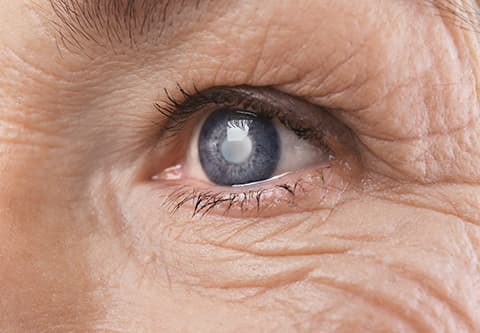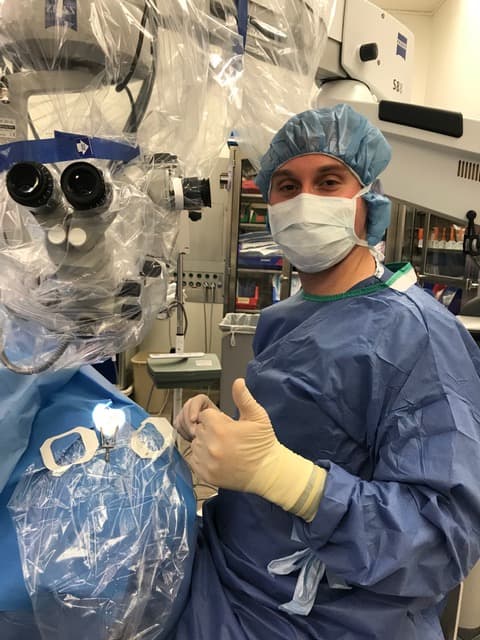Cataract Surgery
What is a cataract?
The term cataract is used to describe the natural lens of the eye when it becomes cloudy.

What are the Symptoms of a Cataract?
Cataracts can cause foggy, cloudy or blurred vision. Cataracts can also cause glare. Most people notice glare when trying to drive at night, but glare can be noticed at times during daytime driving. Glare can also cause problems with certain indoor lighting situations.
Can cataract surgery be done with lasers?
Although experimental laser technology is being developed to aid in cataract surgery, traditional surgical techniques are still required when using these devices. Lasers alone cannot be used to remove a cataract. Typically, a form of ultrasonic technology, called phacoemulsification, is used to perform today’s high-tech cataract surgery with intraocular lens implantation. We routinely do use lasers in our office for treatment of glaucoma, retinal diseases, and laser vision correction.
When is the right time to have cataract surgery?
The answer is different for different people. Cataract surgery should be considered if there are symptoms that are causing limitations in functional ability or quality of life.
Cataract surgery always incorporates implantation of an artificial lens. With modern cataract surgery, there are choices of different lens implant styles depending on the specific configuration.
Types of Lens Implants:
Monofocal Lens
- A monofocal lens implant has a single focal point.
- A focal point is a distance from the eye where a person can see clearly without glasses.
- If you choose the monofocal lens implant, the focal point is usually set so that you can see well at distance without glasses.
- If the focal point is set for distance, you will need glasses for reading and for intermediate vision such as viewing a computer screen or reading music.
- You may choose to have a monofocal lens set for reading without glasses, but then you will need glasses to see far away.
- A standard monofocal lens cannot correct astigmatism, while a toric (astigmatism correcting lens) can.
Multifocal Lens
- Multifocal lens implants have more than one focal point.
- If you choose a multifocal lens, you will be free from glasses most of the time for distance, intermediate and reading vision.
- Sometimes, for the best results, multifocal lens implants require astigmatism treatment at the time of cataract surgery.
- If you choose a multifocal lens implant, you may notice halos around lights at night. Most people who report nighttime halos report that their symptoms do not interfere with their lifestyle.

Astigmatism Correction
If you have astigmatism, you will need additional correction if you want to see without glasses. There are three ways to treat astigmatism at the time of surgery.
1. Femtosecond Laser
The femtosecond laser is a recent development in the history of cataract surgery. Most astigmatism can be corrected with the femtosecond laser. In addition to correcting astigmatism, the femtosecond laser is used to perform challenging steps of cataract surgery, which may improve precision, reduce the overall energy used, and lead to a quicker recovery.
2. Limbal Relaxing Incisions
Limbal relaxing incisions can also correct astigmatism and minimize the need for distance glasses after cataract surgery. Limbal relaxing incisions are manually created, partial thickness incisions on the cornea. These incisions can correct mild to moderate astigmatism.
3. Toric Intraocular Lens Implant
Toric intraocular lens implants have astigmatism correction built into the lens implant. Toric lenses are used to correct moderate to severe astigmatism.
With femtosecond laser astigmatism treatment, limbal relaxing incisions and toric lenses, glasses will still be required for intermediate and near vision, unless a multifocal lens is used.
Cataract Treatment in the New York and Connecticut Areas
Hudson Valley Eye Surgeons is here to help you with your cataract treatment and surgery needs. We also offer cataract treatment for Poughkeepsie NY, Danbury CT, Waterbury CT and the surrounding New York and Connecticut areas. For more information, please contact our office at 845-896-9280 or at patients@hves.com

